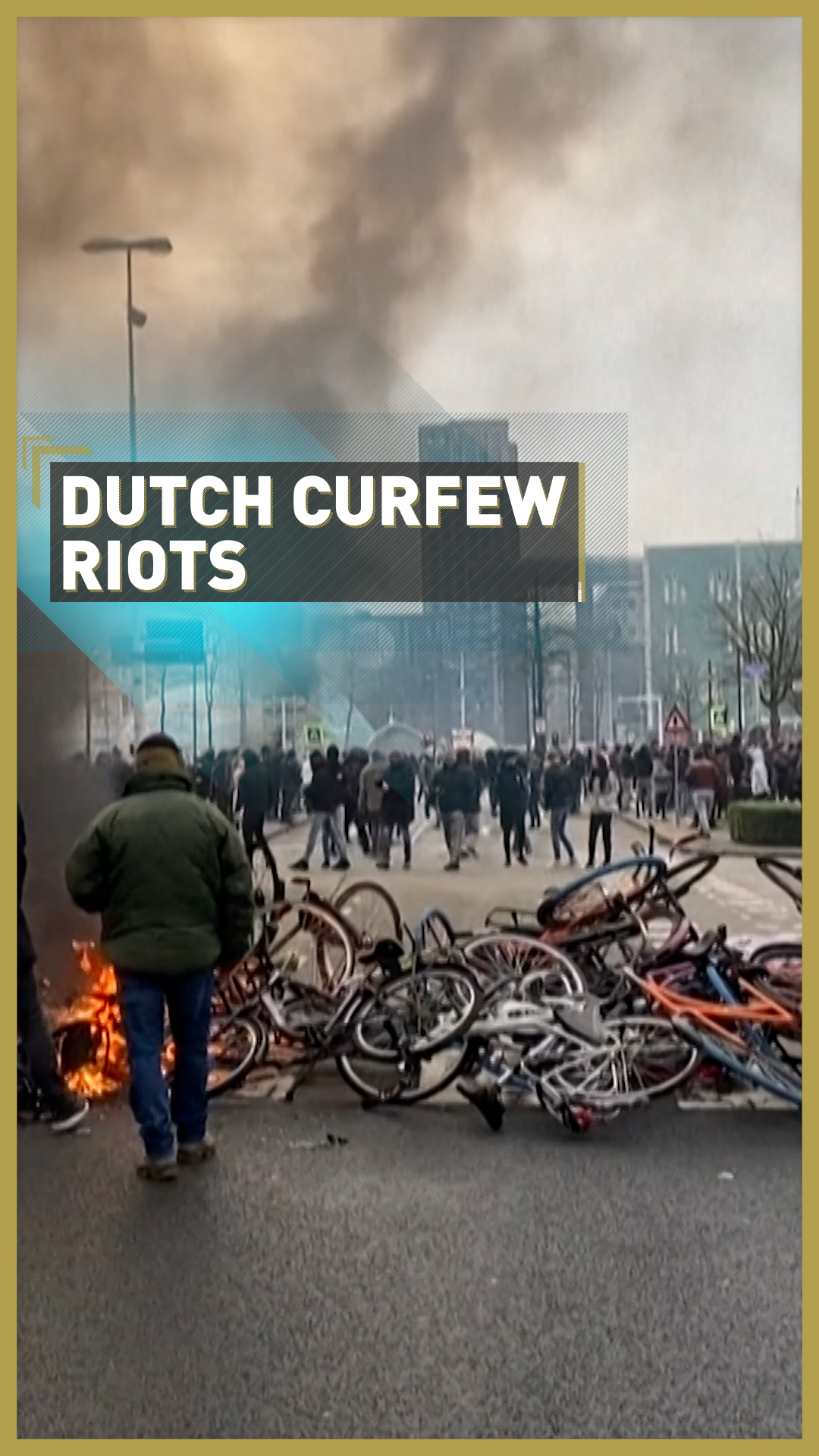00:50

Anti-lockdown protests in the Dutch city of Eindhoven spilled over into clashes, violence and looting this weekend. There were protests in several cities, including the capital Amsterdam, railing against measures put in place to stop the spread of the virus. A new curfew lasting more than two weeks was the spark for Sunday's action.
In the capital, police used a water cannon against the crowds which soon dispersed.

A car burns outside the central train station in Eindhoven while police look on. /Rob Engelaar/AFP
A car burns outside the central train station in Eindhoven while police look on. /Rob Engelaar/AFP
But in the southern city of Eindhoven, not far from the Belgian border, uglier scenes took place around the central train station and at least 30 people were arrested.
According to regional reports, vehicles were burned, businesses were vandalized and protesters looted shops in the central station.
Protesters also threw missiles at police – including the large cobble stones which adorn many public spaces in the country, which were ripped from the ground and thrown at police vehicles. Cobblestones weren't the only way the groups used their environment to their advantage, though. Others were seen piling bicycles in the street to create makeshift barricades.

Shops inside the station were wrecked by protesters. /Rob Engelaar/AFP
Shops inside the station were wrecked by protesters. /Rob Engelaar/AFP
Police responded with riot equipment and police horses, which were seen attempting to control the crowds.
The station was closed and Dutch rail provider NS told customers to avoid the area, or delay trips to the city.
The protesters accuse Dutch Prime Minister Mark Rutte of going too far by enforcing a curfew from 9 p.m. to 4:30 a.m., with a $115 fine for those caught outside without a certificate of exemption.
Right-wing political figure Geert Wilders told local media the curfew was an over-step.
"I do not accept that we unnecessarily ... introduce curfews while there are alternatives."
The Netherlands was already under its toughest pandemic measures, with bars and restaurants closed since October, and schools and non-essential shops shut since December.
Dutch lawmakers approved Rutte's curfew, though pushed its start half an hour later than the original 8:30 p.m. time.
Video editor: Sam Cordell
Source(s): AFP

